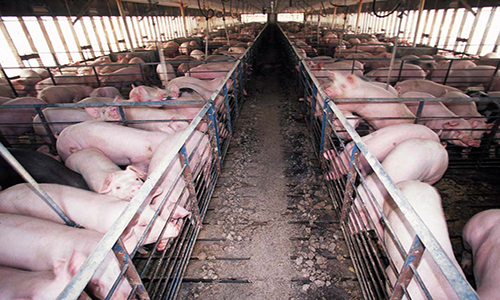Missouri Farm Bureau public affairs director Eric Bohl says the COVID-19 crisis has hit livestock farmers hard. First, stay-at-home orders destroyed demand from restaurants and schools as well as a large portion of the meat and dairy market.
As the pandemic grew, it began to impact employees at meat processing plants which caused several processors to slow or close their operations while implementing new safety measures and deep cleaning the facilities.
Bohl quoted hog farmer and Missouri Farm Bureau Vice President Todd Hays in explaining why temporary slowdowns and closures impact farmers. He said processors essentially work on a just-in-time inventory system. Farmers are scheduled to ship pigs to the processor about one week in advance, and they typically are processed within hours of delivery.
Most hog farmers have a certain number of piglets born weekly and send a similar number of pigs to the processing facility to make room for the newborns’ arrival. When processors stop accepting new deliveries, farmers have to find a place to store market-ready pigs until the processor returns to full capacity and can work through the backlog. According to hays, most hog farmers have no more than two weeks of room to keep pigs on the farm.
Bohl reports farmers can take steps to alter the hogs’ diet to slow down their growth and keep them from getting too large to process, but by doing this, they still will be at weight processors will accept when they return to normal operations.
Bohl says Missouri Farm Bureau supports President Trump’s recent decision to declare meat processors ‘essential’ businesses. The declaration is intended to keep the production line moving while providing more access to resources like personal protective equipment.
Bohl noted many workers at meat processing facilities reside in close quarters with multi-generational families. He said, like with other businesses, keeping employees as safe as possible, while at work, it is vital to not spread infection through their communities.
Bohl mentioned, once processors return to normal capacity, it will take time to work through the backlog of animals caused by the slowdowns and shutdowns, until then, both farmers and grocery store shoppers may continue to be affected.
Bohl says there’s no shortage of supply on farms, but the pipeline needs to re-open to get meat to stores. Missouri farm bureau will continue to advocate for policies to keep workers safe while opening the flow of meat from farmers to consumers.







